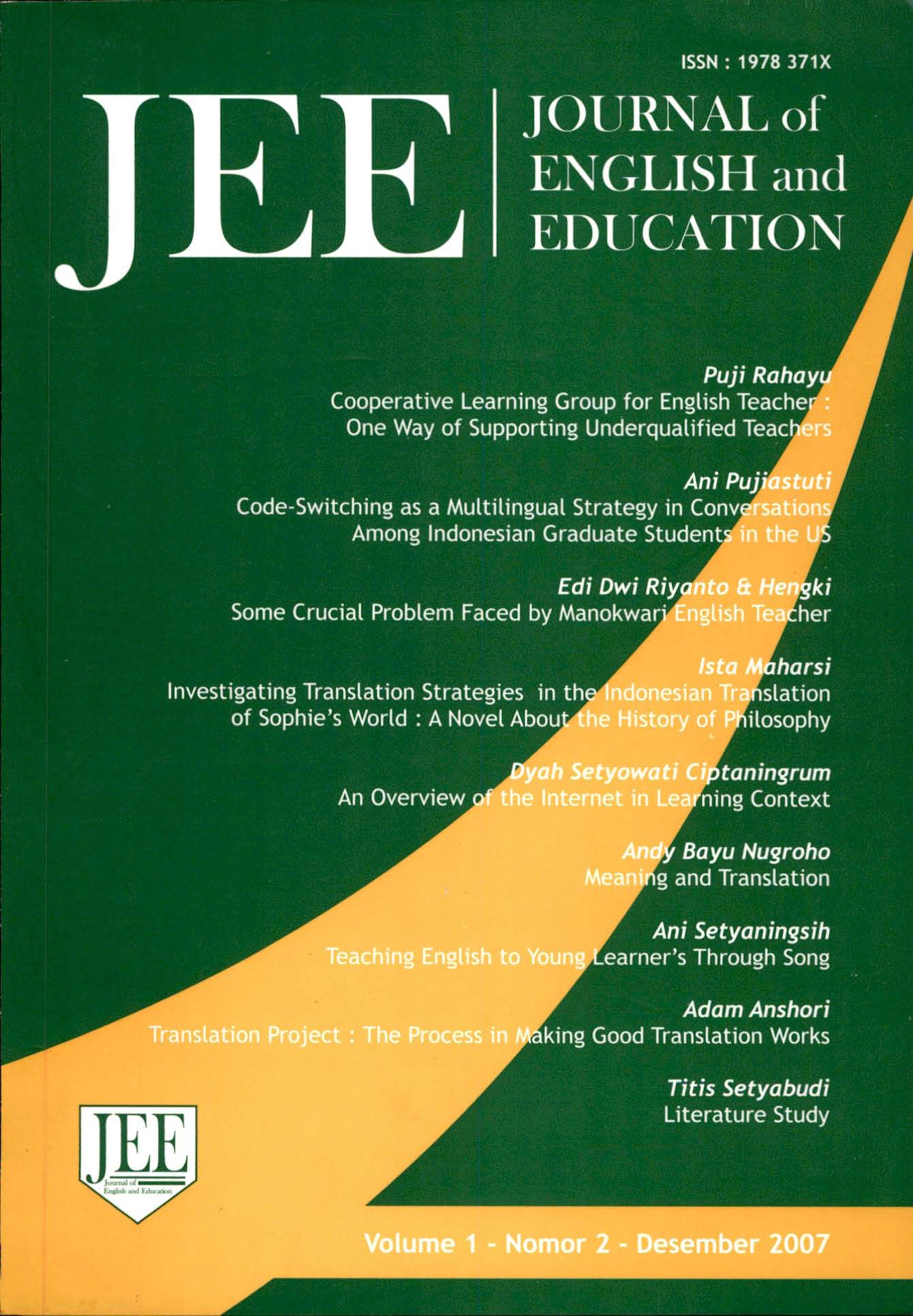Main Article Content
Abstract
This paper discusses Hawthorne's attitudes toward his ancestor's religious belief depicted in his work "Young Goodman Brown". The analysis is conducted by using sociological approach as this approach concentrates on the social context of writing or on die literary text and its social meaning. It also explores the relationship between the artist and society as this approach believes that the writers are part of the world they describe. Thus, the biographical sketch of the author is also presented to support the analysis.
Based on the analysis, it can be concluded that "Young Goodman Brown" reveals Hawthome's skepticism toward Puritanism, his ancestors' religious belief. The main character's inner conflict dealing with his religious belief portrays the writer's question on the worth of the very strict doctrine that his ancestors possessed. Expressing his anti-Puritan view, he creates the setting of the story which reminds his audience of the outrageous trials conducted by Puritans in 1692 known as Salem Witch Trials. He also borrows the characters' names from the victims of those trials. The downfall of his tragic hero caused by his distrustful feeling toward his own religion also indicates Hawthome's skepticism to Puritanism.
Keywords
Article Details
Copyright (c) 2016 JEE, Journal of English and Education

This work is licensed under a Creative Commons Attribution-ShareAlike 4.0 International License.
Authors who publish with this journal agree to the following terms:
- Authors retain copyright and grant the journal right of first publication with the work simultaneously licensed under a Creative Commons Attribution-ShareAlike 4.0 International License that allows others to share the work with an acknowledgment of the work's authorship and initial publication in this journal.
- Authors are able to enter into separate, additional contractual arrangements for the non-exclusive distribution of the journal's published version of the work (e.g., post it to an institutional repository or publish it in a book), with an acknowledgment of its initial publication in this journal.
- Authors are permitted and encouraged to post their work online (e.g., in institutional repositories or on their website) prior to and during the submission process, as it can lead to productive exchanges, as well as earlier and greater citation of published work (See The Effect of Open Access).

